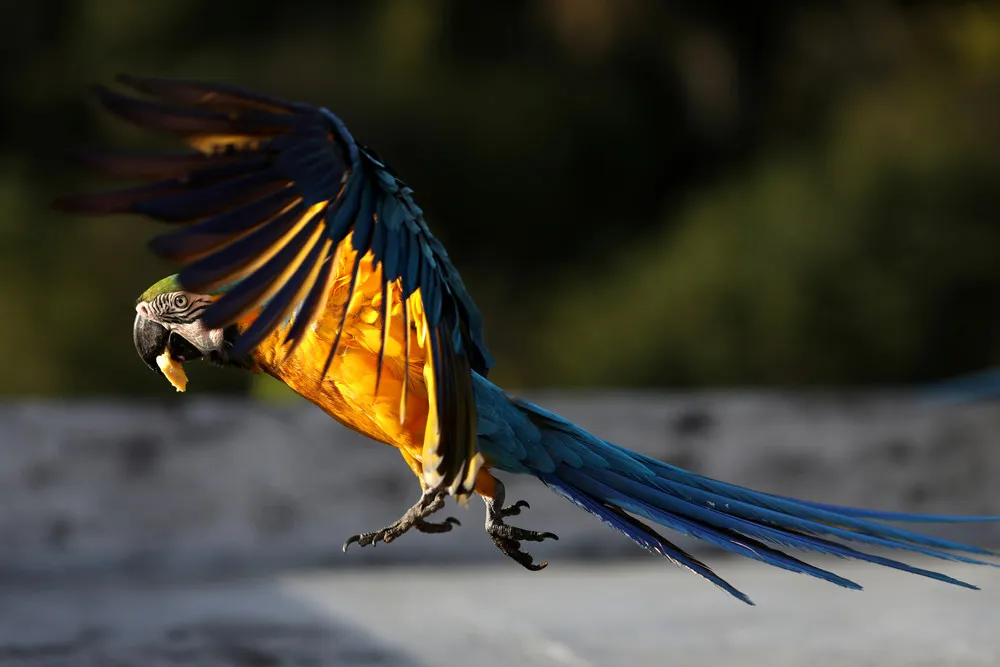|
Looking for an escape from the daily realities of crisis-ridden Venezuela, Carmen Gomez finds solace receiving visitors on the roof of her Caracas apartment building every morning: groups of blue and gold macaws that arrive at daybreak. Gomez, a 49-year-old alternative medicine therapist, sat one bright morning in May on top of her 11-story building with a can of sunflower seeds and a tray of bananas to await their arrival. After nearly an hour, two macaws landed on the roof. A third swooped out of the sky and casually perched on her head – releasing two of the typical squawks that often resonate across the city. “This one decided that she's mine – or rather that I'm hers”, said Gomez, who noted she recognizes the bird because of a mark on its beak. “I think they've turned into the therapists of Caracas”, she said, unfazed by the bird impatiently pecking her forehead as she peeled a banana. Long described as a bright spot in a city that has been in decline for years, Caracas's macaws have become a mechanism of escape from the daily grind of finding potable water, struggling with collapsing internet and avoiding crime-ridden streets. Here: A macaw flies over a rooftop of a building with a piece of banana in its beak in Caracas, Venezuela, June 12, 2019. (Photo by Manaure Quintero/Reuters)
|

